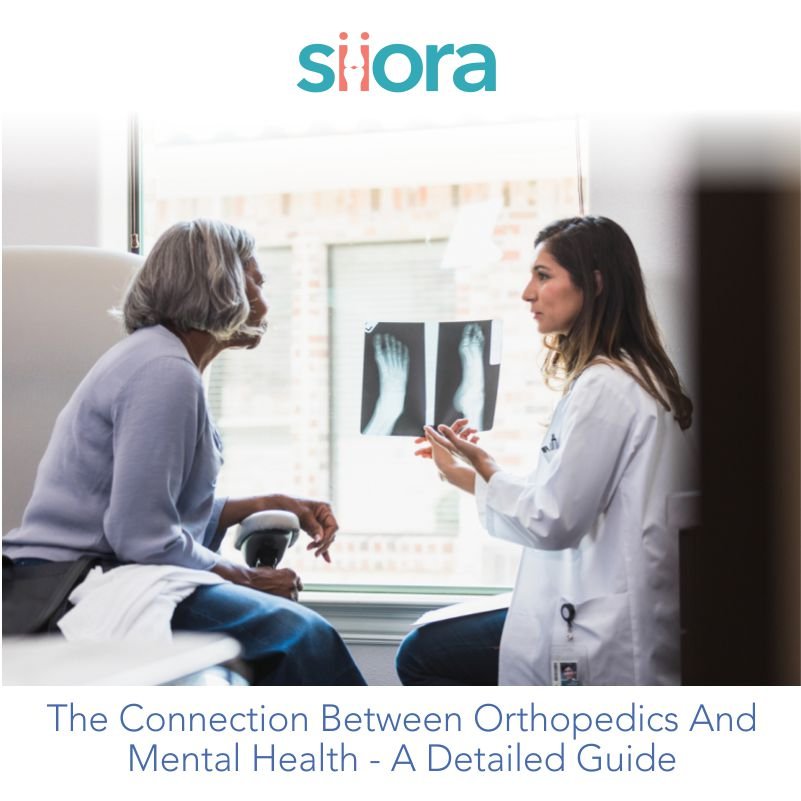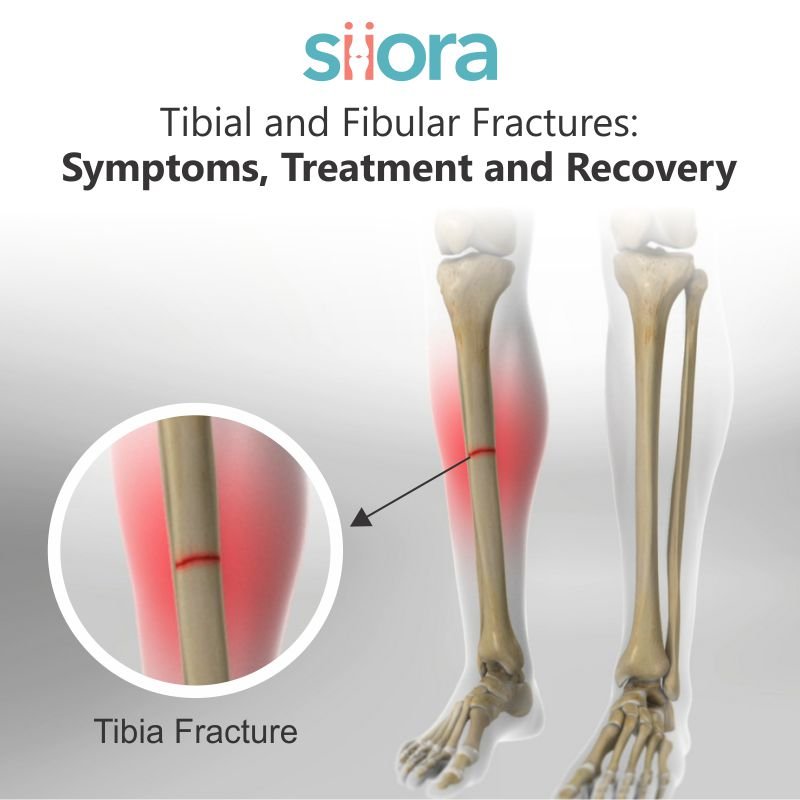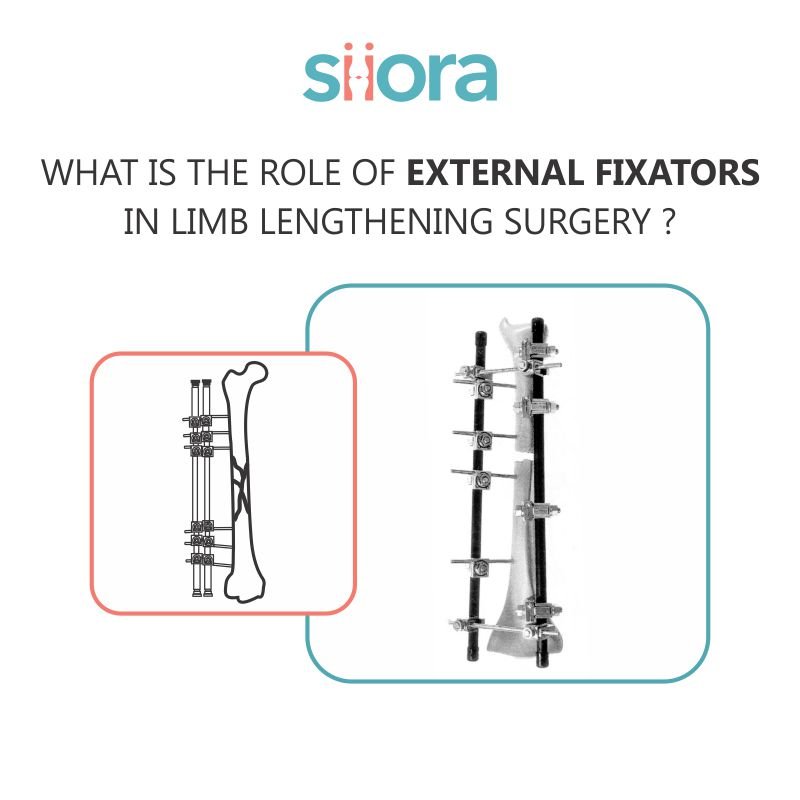In the realm of healthcare, the connection between physical and mental well-being is a topic gaining increasing attention. While the fields of orthopedics and mental health may seem disparate at first glance, a closer examination reveals a profound interdependence. This blog delves into the intricate relationship between orthopedics and mental health, exploring how physical health can significantly impact mental well-being and vice versa. When an orthopedic implant is applied or required to be applied, the mental status of the patient is altogether different. Let us dive deep into this discussion.
Understanding Orthopedics
Orthopedics is a specialized branch of medicine that focuses on the musculoskeletal system, encompassing bones, joints, ligaments, tendons, and muscles. Orthopedic specialists diagnose and treat a wide range of conditions, from fractures and sprains to more chronic issues like arthritis. The goal is to enhance patients’ mobility, alleviate pain, and improve overall quality of life.
Physical Well-being and Mental Health
The intricate link between physical health and mental well-being is evident in the bidirectional relationship between orthopedics and mental health. A person’s physical condition can profoundly impact their mental state, and conversely, mental health issues may manifest physically.
Pain and Psychological Impact
One of the most evident connections between orthopedics and mental health lies in the experience of chronic pain. Individuals grappling with orthopedic conditions often endure persistent discomfort, which can contribute to mental health challenges such as anxiety and depression. The constant struggle with pain not only affects the individual’s daily activities but also takes a toll on their emotional resilience.
Mobility and Independence
Orthopedic issues can limit mobility, impacting an individual’s ability to engage in regular physical activities. Reduced mobility can lead to a sedentary lifestyle, which is associated with a higher risk of mental health issues. Moreover, the loss of independence and the inability to perform routine tasks independently can contribute to feelings of frustration, isolation, and even depression.
Chronic Conditions and Mental Health
Chronic orthopedic conditions, such as osteoarthritis or rheumatoid arthritis, are not only physically debilitating but also have psychological ramifications. Coping with a condition that requires ongoing management can lead to stress and a sense of uncertainty about the future. This chronic stress, if not addressed, can contribute to the development or exacerbation of mental health disorders.
The Psychological Impact on Orthopedic Patients
Beyond the physical implications, orthopedic conditions can profoundly affect an individual’s mental health. The psychological impact may manifest in various ways, influencing their overall well-being.
Emotional Distress and Coping Mechanisms
A sudden injury or the diagnosis of a chronic orthopedic condition can be emotionally distressing. Patients may experience fear, frustration, or sadness about the potential limitations imposed on their lives. Coping with these emotions becomes crucial, and support from mental health professionals can be instrumental in helping individuals navigate this challenging terrain.
Body Image and Self-Esteem
Orthopedic conditions that affect physical appearance or lead to visible alterations can impact body image and self-esteem. Patients may grapple with changes in their appearance, leading to feelings of self-consciousness or a diminished sense of self-worth. Addressing these concerns through counseling and support is vital for fostering a positive self-image.
Social Isolation
Limited mobility and chronic pain may lead to social isolation as individuals find it challenging to participate in social activities. This isolation can exacerbate feelings of loneliness and contribute to the development of mental health issues. Encouraging social engagement and providing avenues for connection can be pivotal in mitigating this aspect of the psychological impact.
Addressing the Connection
Recognizing the intimate connection between orthopedics and mental health highlights the importance of adopting a holistic approach to patient care. Healthcare professionals must collaborate across disciplines to address both the physical and psychological aspects of a patient’s well-being.
Integrated Care
Integrated care models that combine orthopedic expertise with mental health support can significantly enhance patient outcomes. Collaborative efforts between orthopedic surgeons, physical therapists, and mental health professionals can ensure a comprehensive approach to patient care, addressing both the physical and psychological dimensions of health.
Pain Management Strategies
Pain management plays a pivotal role in addressing the connection between orthopedics and mental health. Implementing effective pain management strategies, including a combination of medical interventions and psychological support, can alleviate not only physical discomfort but also mitigate the psychological impact of chronic pain.
Patient Education and Empowerment
Educating patients about the relationship between orthopedics and mental health empowers them to actively participate in their care. Understanding the potential psychological challenges and having access to resources for mental health support can contribute to a more resilient and informed patient population.
Conclusion
In conclusion, the intricate connection between orthopedics and mental health underscores the need for a holistic approach to healthcare. Recognizing and addressing the psychological impact of orthopedic conditions is essential for promoting comprehensive well-being. By fostering collaboration between orthopedic specialists and mental health professionals, we can optimize patient care, improve outcomes, and contribute to a healthcare landscape that values the inseparable link between physical and mental health.
Siora Surgicals Pvt. Ltd. is a world-leader in manufacturing and supplying a CE-certified range of trauma implants and instruments. Since its inception, the company has been serving national and international distributors and orthopedic surgeons. Clients in over 50 countries have been using orthopedic implants manufactured by Siora. The company always keeps looking to expand its market reach by finding distributors from across the globe. Siora is also a trustworthy OEM/contract manufacturing service provider.








